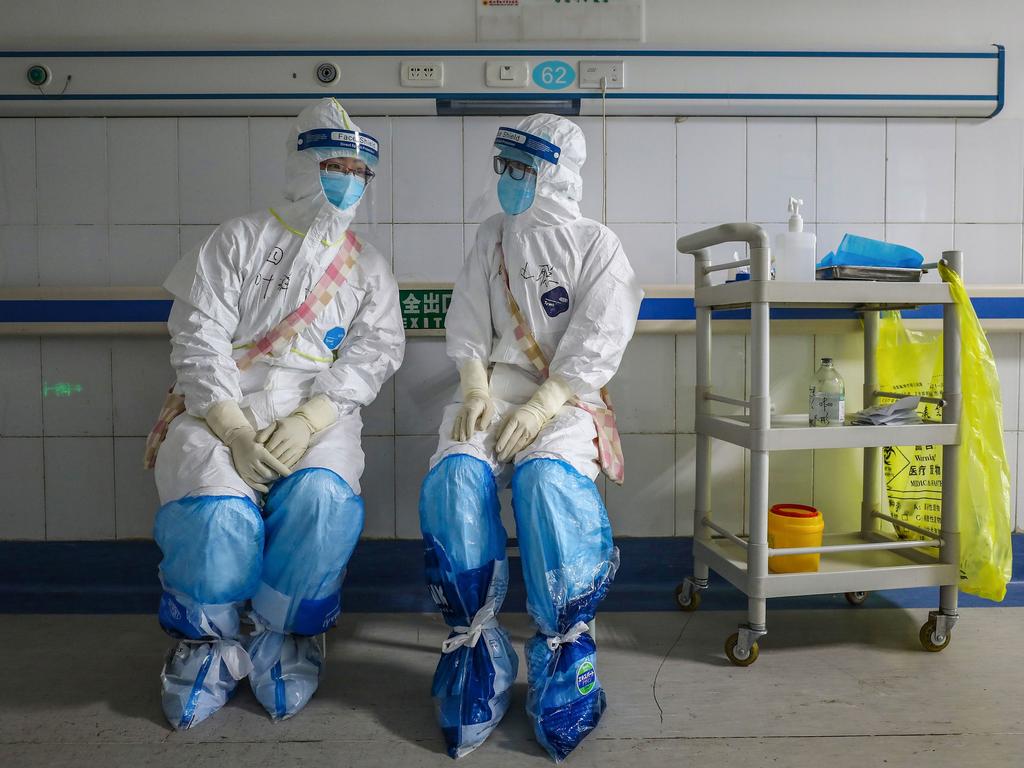’Planning for the worst’: How to prepare for an Australian coronavirus outbreak
As the window to contain the deadly coronavirus outbreak closes, experts reveal the steps Australians should be taking to avoid the killer disease.
In China, Covid-19 came from nowhere on January 1 to put the entire province of Wuhan in lockdown by February.
Its rapid rate of spread can be seen again in Italy and Japan and the World Health Organisation has now warned the “window of opportunity” to contain the disease is narrowing.
So can Australia cope if the disease spreads rapidly here? And what preparations should ordinary citizens be making?
THE OFFICIAL RESPONSE
“We’ve provided guidance to practitioners and many communications materials but are now focused on the models of care that will need to be in place – clinics, phone triage, home care, right through to ICU and aged care,” Victoria’s Chief Health Officer Brett Sutton says.
“Victoria and Australia nonetheless remain completely in containment mode – identifying any possible case; isolating those who are infectious; and quarantining contacts. Regardless of developments internationally, this gives all of us time and space to plan and prepare.”
But this response leaves us vulnerable, director of the Johns Hopkins Centre for Health Security in Baltimore Tom Inglesby warns.
“Given the developments and trends of last few days, it’s clear governments need to be working intently with hospitals and health care systems to prepare to take care of Covid patients, possibly in high numbers,” he says.
RELATED: Containment fails as virus goes global
RELATED: Chinese leader’s virus concession

Key among concerning Covid-19 developments is the number of cases appearing in countries outside China. And many of these aren’t linked to travellers … indicating the virus is established in their general populations.
Inglesby says that, based on China’s experience, preparations should include:
• Preparing for a substantial increase in the numbers of patients who need oxygen and mechanical ventilation;
• Getting people with symptoms of Covid-19 diagnosed rapidly and correctly
• Establishing the highest possible infection control procedures
• Ensuring health care workers have high-quality personal protection equipment to keep them from being infected
• Preparing to give those with Covid-19 who are not sick enough to be in the hospital, instructions for home isolation and self-care, so they do not pose risks to hospitalised
• Evaluating whether there are public health interventions at community levels that might slow Covid-19 spread to create fewer numbers of very sick people all being in hospital at the same time
RELATED: Don’t buy China’s coronavirus story
RELATED: Scary development in virus spread

HOW SHOULD YOU PREPARE?
Risk group Lanard and Sandman say preparedness advice must be spread: “Hardly any officials are telling civil society and the general public how to get ready.”
To allay panic, they say, health officials should be providing preparedness guidelines.
This way worried people won’t be left feeling helpless. And the more people getting prepared, the more people will feel their community is ready.
“We are all stakeholders, and we don’t just want to hear what officials are doing. We want to hear what we can do, too,” they write.
“We want – and need – to hear advice like this:
• Try to get a few extra months’ worth of prescription meds, if possible.
• Don’t panic buy. But slowly build up your long-life grocery stocks to enough for a few weeks.
• Think through now how we will take care of sick family members while trying not to get infected.
• Cross-train key staff at work, so one person’s absence won’t derail your organisation’s ability to function.
• Practice touching our faces less. So how about a face-counter app like the step-counters so many of us use?
• Replace handshakes with elbow-bumps (the “ebola handshake”).
• Start practising harm-reduction habits like pushing elevator buttons with a knuckle instead of a fingertip.
But the impact of a pandemic could also reach deep into businesses, supply chains and essential services.
“We have seen almost nothing in mainstream media citing this guidance, or recommending business continuity strategies like urgent cross-training so that core functions won’t be derailed because certain key employees are out sick, for instance.”
That message is now starting to get out.
At least at a state level.
“Australia absolutely has world-class healthcare, but even the best healthcare in the world is challenged during pandemics,” Sutton says. “We’ve got some of the brightest minds in the world in our health services, laboratories, research sector and emergency management sector. I’m confident we’re well placed to meet the challenges ahead, whatever they might be. Hoping for the best and planning for the worst.”




